三叔丁基硼酸酯, 99%,Tri-tert-butyl borate
产品编号:西域试剂-WR380212| CAS NO:7397-43-5| MDL NO:MFCD00009652| 分子式:C12H27BO3| 分子量:230.15
本网站销售的所有产品仅用于工业应用或者科学研究等非医疗目的,不可用于人类或动物的临床诊断或者治疗,非药用,非食用,
| 英文名称 | Tri-tert-butyl borate |
|---|---|
| CAS编号 | 7397-43-5 |
| 产品熔点 | 18-19ºC(lit.) |
| 产品沸点 | 175.3±0.0 °C at 760 mmHg |
| 产品密度 | 0.9±0.1 g/cm3 |
| 产品闪点 | 29.4±0.0 °C |
| 精确质量 | 230.205322 |
| PSA | 27.69000 |
| LogP | 5.14 |
| 外观性状 | 透明无色液体 |
| 蒸气压 | 1.6±0.3 mmHg at 25°C |
| 折射率 | 1.409 |
| 稳定性 | 常温常压下稳定,避免与强氧化剂接触。 避免与不相容材料,火源,湿空气,水接触。 与强氧化剂反应。 |
| 储存条件 | 密封储存,储存于阴凉、干燥的库房。远离火源,易燃易爆区。常用氮气保护。 |
相关文档
化学品安全说明书(MSDS)
下载MSDS质检证书(COA)
相关产品
| 风险声明 (欧洲) | R10 |
|---|---|
| 安全声明 (欧洲) | 16-33 |
| 危险品运输编码 | UN 1993 3 |
| 包装等级 | III |
| 危险类别 | 3.2 |
| 海关编码 | 2920909090 |
Synonym:Tri-tert-butoxyboran Section 2 - COMPOSITION, INFORMATION ON INGREDIENTS
Risk Phrases: 10 Section 3 - HAZARDS IDENTIFICATION EMERGENCY OVERVIEW
Flammable.The toxicological properties of this material have not been fully investigated.Moisture sensitive. Potential Health Effects Eye: May cause eye irritation. Skin: May cause skin irritation. May be harmful if absorbed through the skin. Ingestion: May cause irritation of the digestive tract. May cause gastrointestinal irritation with nausea, vomiting and diarrhea. The toxicological properties of this substance have not been fully investigated. May be harmful if swallowed. Inhalation: May cause respiratory tract irritation. The toxicological properties of this substance have not been fully investigated. May be harmful if inhaled. Chronic: No information found. Section 4 - FIRST AID MEASURES Eyes: Immediately flush eyes with plenty of water for at least 15 minutes, occasionally lifting the upper and lower eyelids. Get medical aid. Skin: Flush skin with plenty of water for at least 15 minutes while removing contaminated clothing and shoes. Ingestion: Do not induce vomiting. If victim is conscious and alert, give 2-4 cupfuls of milk or water. Get medical aid. Wash mouth out with water. Inhalation: Remove from exposure and move to fresh air immediately. If not breathing, give artificial respiration. If breathing is difficult, give oxygen. Get medical aid. Notes to Physician: Treat symptomatically and supportively. Section 5 - FIRE FIGHTING MEASURES General Information: As in any fire, wear a self-contained breathing apparatus in pressure-demand, MSHA/NIOSH (approved or equivalent), and full protective gear. Vapors can travel to a source of ignition and flash back. Can burn in a fire, releasing toxic vapors. During a fire, irritating and highly toxic gases may be generated by thermal decomposition or combustion. Flammable liquid and vapor. Extinguishing Media: In case of fire, use water, dry chemical, chemical foam, or alcohol-resistant foam. Section 6 - ACCIDENTAL RELEASE MEASURES General Information: Use proper personal protective equipment as indicated in Section 8. Spills/Leaks: Absorb spill with inert material (e.g. vermiculite, sand or earth), then place in suitable container. Avoid runoff into storm sewers and ditches which lead to waterways. Clean up spills immediately, observing precautions in the Protective Equipment section. Remove all sources of ignition. Use a spark-proof tool. Provide ventilation. Section 7 - HANDLING and STORAGE Handling: Ground and bond containers when transferring material. Use spark-proof tools and explosion proof equipment. Avoid breathing dust, vapor, mist, or gas. Avoid contact with skin and eyes. Empty containers retain product residue, (liquid and/or vapor), and can be dangerous. Container should be opened by a technically qualified person. Use only in a chemical fume hood. Do not pressurize, cut, weld, braze, solder, drill, grind, or expose empty containers to heat, sparks or open flames. Keep away from heat, sparks and flame. Storage: Keep away from sources of ignition. Store in a cool, dry place. Store in a tightly closed container. Keep under a nitrogen blanket. Flammables-area. Section 8 - EXPOSURE CONTROLS, PERSONAL PROTECTION Engineering Controls: Facilities storing or utilizing this material should be equipped with an eyewash facility and a safety shower. Use adequate general or local explosion-proof ventilation to keep airborne levels to acceptable levels. Exposure Limits CAS# 7397-43-5: Personal Protective Equipment Eyes: Wear chemical splash goggles. Skin: Wear appropriate protective gloves to prevent skin exposure. Clothing: Wear a chemical apron. Respirators: Follow the OSHA respirator regulations found in 29 CFR 1910.134 or European Standard EN 149. Use a NIOSH/MSHA or European Standard EN 149 approved respirator if exposure limits are exceeded or if irritation or other symptoms are experienced. Section 9 - PHYSICAL AND CHEMICAL PROPERTIES Physical State: Liquid Color: clear, colorless Odor: Not available. pH: Not available. Vapor Pressure: Not available. Viscosity: Not available. Boiling Point: 101 deg C @ 74.00mm Hg Freezing/Melting Point: 18 - 19 deg C Autoignition Temperature: Not available. Flash Point: 29 deg C ( 84.20 deg F) Explosion Limits, lower: Not available. Explosion Limits, upper: Not available. Decomposition Temperature: Solubility in water: Specific Gravity/Density: .8110g/cm3 Molecular Formula: C12H27BO3 Molecular Weight: 230.15 Section 10 - STABILITY AND REACTIVITY Chemical Stability: May decompose on exposure to moist air or water. Moisture sensitive. Conditions to Avoid: Ignition sources, excess heat, exposure to moist air or water. Incompatibilities with Other Materials: Strong oxidizing agents. Hazardous Decomposition Products: Carbon monoxide, carbon dioxide, oxides of boron. Hazardous Polymerization: Has not been reported. Section 11 - TOXICOLOGICAL INFORMATION RTECS#: CAS# 7397-43-5 unlisted. LD50/LC50: Not available. Carcinogenicity: Tri-tert-butyl borate - Not listed by ACGIH, IARC, or NTP. Section 12 - ECOLOGICAL INFORMATION Section 13 - DISPOSAL CONSIDERATIONS Dispose of in a manner consistent with federal, state, and local regulations. Section 14 - TRANSPORT INFORMATION IATA Shipping Name: FLAMMABLE LIQUID, N.O.S.* Hazard Class: 3 UN Number: 1993 Packing Group: III IMO Shipping Name: FLAMMABLE LIQUID, N.O.S. Hazard Class: 3.3 UN Number: 1993 Packing Group: III RID/ADR Shipping Name: FLAMMABLE LIQUID, N.O.S. Hazard Class: 3 UN Number: 1993 Packing group: III Section 15 - REGULATORY INFORMATION European/International Regulations European Labeling in Accordance with EC Directives Hazard Symbols: Not available. Risk Phrases: R 10 Flammable. Safety Phrases: S 16 Keep away from sources of ignition - No smoking. WGK (Water Danger/Protection) CAS# 7397-43-5: No information available. Canada None of the chemicals in this product are listed on the DSL/NDSL list. CAS# 7397-43-5 is not listed on Canada's Ingredient Disclosure List. US FEDERAL TSCA CAS# 7397-43-5 is not listed on the TSCA inventory. It is for research and development use only. SECTION 16 - ADDITIONAL INFORMATION N/A |
|
~% 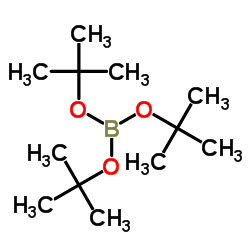
7397-43-5 |
| 文献:Journal of the Chemical Society, , p. 667,670 |
|
~58% 
7397-43-5 |
| 文献:Cole, T. E.; Quintanilla, R.; Rodewald, S. Synthesis and Reactivity in Inorganic and Metal-Organic Chemistry, 1990 , vol. 20, p. 55 - 64 |
|
~% 
7397-43-5 |
| 文献:Journal of the American Chemical Society, , vol. 77, p. 1900 |
|
~% 
7397-43-5 |
| 文献:Journal of the American Chemical Society, , vol. 78, p. 3613 |
|
~% 
7397-43-5 |
| 文献:Inorganic Chemistry, , vol. 23, p. 2929 - 2931 |
|
~0% 
7397-43-5
详细
|
| 文献:Chemische Berichte, , vol. 114, # 9 p. 3056 - 3062 |
|
~% 
7397-43-5 |
| 文献:Kronawitter, I.; Noeth, H. Chemische Berichte, 1972 , vol. 105, p. 2423 - 2426 Full Text Show Details Gmelin Handbook: B: B-Verb.13, 2.2.1, page 49 - 52 |
|
~% 
7397-43-5 |
| 文献:Kronawitter, I.; Noeth, H. Chemische Berichte, 1972 , vol. 105, p. 2423 - 2426 Full Text Show Details Gmelin Handbook: B: B-Verb.13, 2.2.1, page 49 - 52 |
|
~% 
7397-43-5 |
| 文献:Polyhedron, , vol. 29, p. 2324 - 2334 |
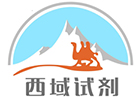
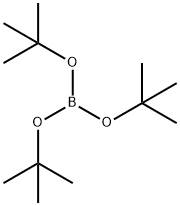
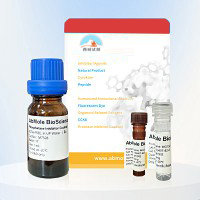
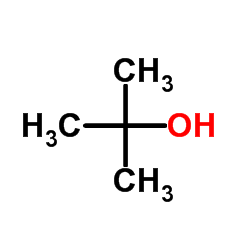
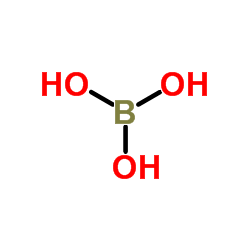
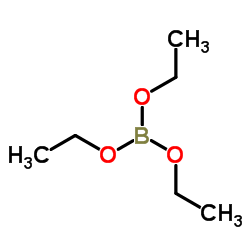

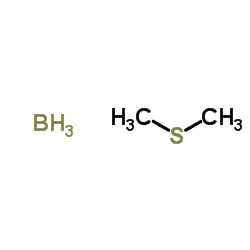
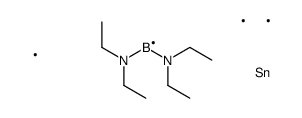
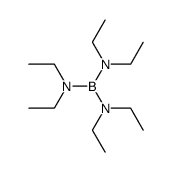
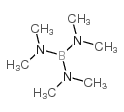







 浙公网安备 33010802013016号
浙公网安备 33010802013016号